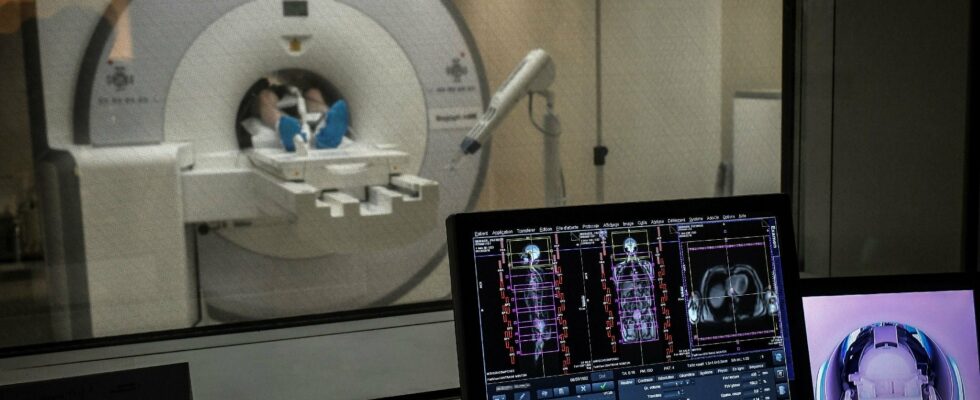Over the past twenty years, the incidence of cancers in France has increased overall due to the increase and aging of the population, but also to various risk factors, indicates a report published this Thursday, September 26 by the National Cancer Institute. Cancers represent the leading cause of death in men, and the second in women, and overall, lung cancer is the deadliest.
Lung cancer, leading cause of death in France
The standardized mortality rate, i.e. independent of demographic changes, decreased over the period 2011-2021, particularly for men (-2.1%, compared to -0.6% for women). This decrease is explained by “earlier diagnoses and significant therapeutic advances”, notes the Inca.
But some cancers remain more deadly than others. In men, the most deadly cancers are lung cancer (more than 20,000 deaths in 2021), colorectal cancer (9,000) and prostate cancer (9,200); in women, breast cancer (12,600 deaths), lung cancer (nearly 10,000) and colorectal cancer (8,000 deaths) are the most deadly. In total, lung cancer alone is therefore responsible for 30,400 deaths recorded in 2021, out of a total of 162,400 cancer-related deaths.
Increasing incidence in women for lung and pancreas
According to the latest 2023 data, the total number of cancers in France increased sharply between 1990 and 2023. Prostate cancer (59,885 cases) is the most common type of cancer in men, followed by lung cancer (33,438 cases) and colorectal cancer (26,212 cases). In women, breast cancer (61,214 cases) is the most common, ahead of colorectal cancer (21,370 cases) and lung cancer (19,339 cases).
“While these latest estimates describe a rather encouraging situation for men, with a decrease in incidence or stability for these locations, two cancers show a worrying increase in the incidence rate in women over the period 2010-2023: lung cancer (+4.3% per year), pancreatic cancer (+2.1% per year),” worries the National Cancer Institute.
The role of tobacco and alcohol
According to the Inca, these results can be explained firstly by demographic changes: “The increase and ageing of the population explain 78% of the change in incidence in men and 57% in women”, the report states. Then come the changes in the risks of developing cancer, which represent 20% in men and 47% in women. For example, 80% of lung cancers are attributable to tobacco, while alcohol consumption is particularly singled out in the occurrence of breast cancer. In the current state of knowledge, the Inca estimates that tobacco is responsible for “28.5% of new cases of cancer in men and 9.3% in women”. Alcohol is responsible for “8.5% of new cases of cancer in men and 7.5% in women”, while an unbalanced diet explains 0.6% of new cases of cancer in men and 2.3% in women; and outdoor air pollution is responsible for 0.6% of new cases of cancer in men and 0.3% in women.
“Prevention of avoidable cancer risk factors and screening […] are two essential weapons in the fight against the disease”, finally recalls the institute, which underlines that participation in colorectal cancer screening (34%) “remains insufficient”.
